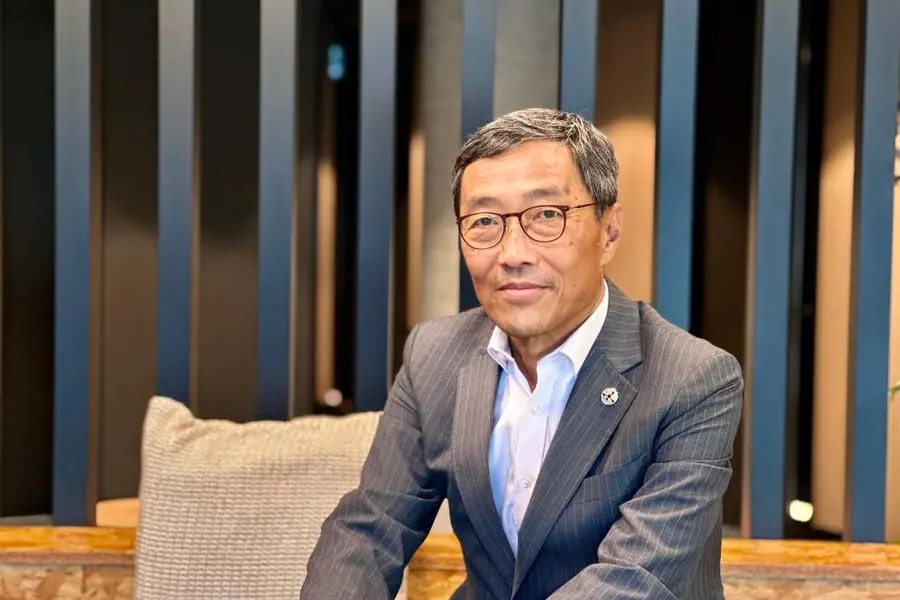PHOTO
- Hong Kong keen to attract Gulf companies
- Analysts predict free trade deal with UAE
Dubai, United Arab Emirates – Oman As Hong Kong prepares to host the Belt and Road Summit this week, its focus is increasingly turning to the Gulf for trade and investment opportunities.
The Chinese special administrative region has been strengthening its links with the Middle East since 2013, when the Belt and Road Initiative was launched. It now wants to attract more companies from the GCC, underscoring its pivotal role in China-Gulf relations.
A free trade deal with the UAE is also on the cards for Hong Kong, analysts have told AGBI.
Albert Wong, CEO of Hong Kong Science and Technology Parks Corporation, said last month that the city was “open to business especially in innovation”, adding: “We also want to attract technology from the Middle East to Hong Kong, which is a two-way track.”
Ahead of the Belt and Road gathering on September 13 and 14, Jimmy Chiang, acting director-general of investment promotion at government agency InvestHK, highlighted opportunities in biotechnology and artificial intelligence.
Sectors such as food, tourism, culture and retail are also in the mix following the launch of a $4 billion Hong Kong government investment fund aimed at tech companies.
The UAE is Hong Kong’s largest Middle East trading partner and its non-oil trade reached $11.7 billion during 2022, a 40 per cent jump over the past five years.
In February, Dubai Chambers announced the opening of an office in Hong Kong, on the back of a visit to the UAE and Saudi Arabia by John Lee, the region’s chief executive.
Last week Emirates announced a third daily flight to Hong Kong starting in November “to meet market demand”.
Redmond Wong, a Saxo Bank analyst based in Hong Kong, told AGBI that the city had thrived as an “entrepôt” for trade and investment services, capitalising on China’s global trade growth.
“This symbiotic relationship is poised to continue, particularly given the waning trade ties with traditional partners like the US and Japan. The burgeoning economic connections between China and the GCC nations provide a promising avenue for Hong Kong’s trajectory,” he said.
UAE exports to Hong Kong were worth $10.7 billion in 2021 – outstripping those to mainland China, which stood at $9 billion.
“This underscores Hong Kong’s role in re-exporting UAE imports to mainland China,” added Redmond Wong.
Saudi Arabia is China’s largest trading partner in the Middle East, with bilateral trade reaching $106 billion in 2022. It is followed by the UAE at $72 billion. Over 6,000 Chinese companies operate in the UAE.
Vijay Valecha, chief investment officer at Century Financial, said the emergence of Saudi Arabia and the UAE as regional leaders had resulted in an increase in trade volumes between Hong Kong and other Gulf nations.
He told AGBI that the Belt and Road Summit was likely to lead to a number of tech-based agreements.
“The trade ties bode well for the budding tech scenario in UAE and Saudi Arabia,” he said.
Hong Kong’s role as a “super-connector” to China also presents an ideal location for GCC sovereign wealth funds to establish operational bases.
“In essence, Hong Kong emerges as the linchpin facilitating deeper economic integration between China and the GCC,” said Redmond Wong.
About AGBI
AGBI (agbi.com) is a new platform that provides intelligence and analysis around the Middle East’s commercial opportunities and challenges. AGBI is owned by Link Media Corporation Ltd, a London-based company that has also recently launched Hyphen (hyphenonline.com), which offers news, features and lifestyle coverage of established and new Muslim communities in the UK and Europe.




















